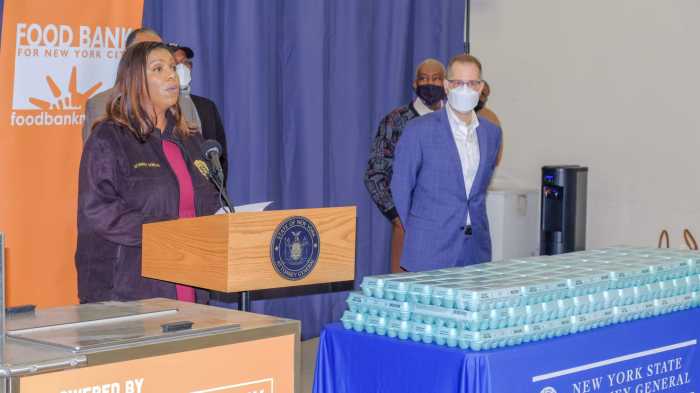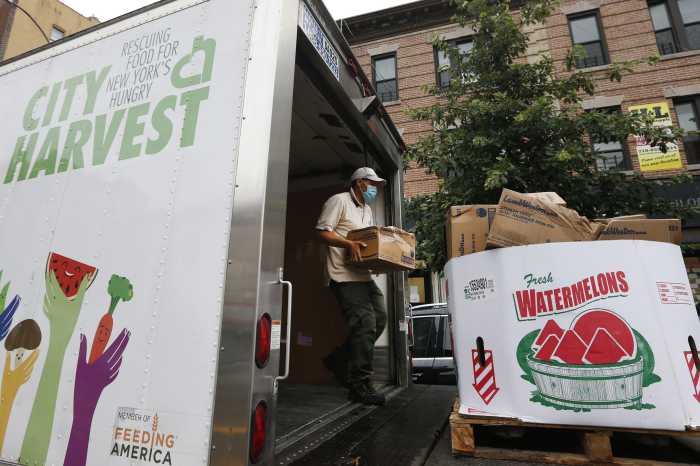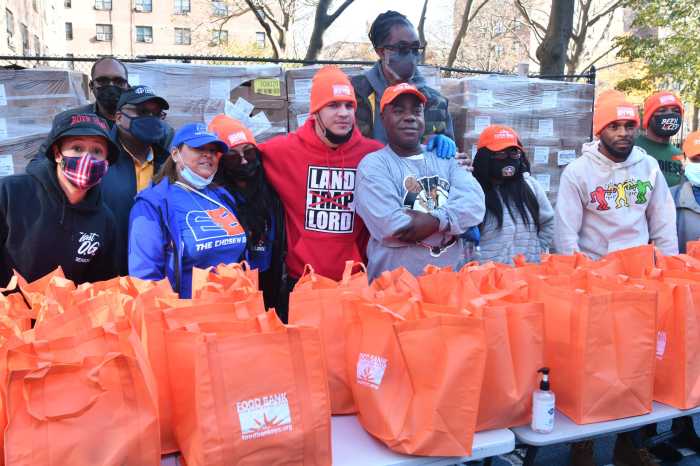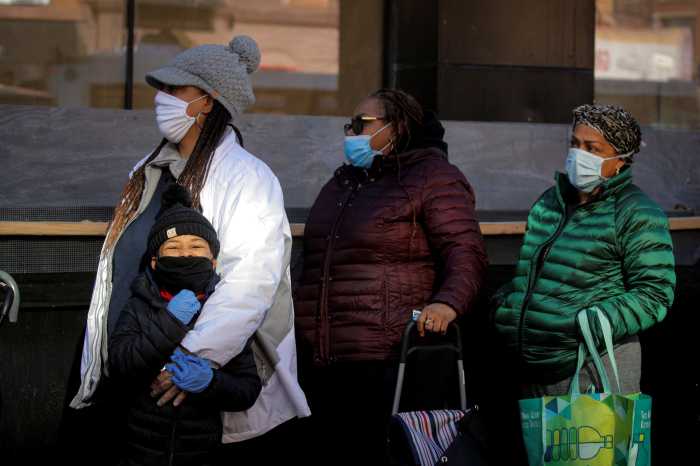A hallmark of the holiday season is compassion—a spirit of appreciation and generosity that can extend to both vulnerable people and pets in need. Typically, we see those acts as separate, but in many ways, they are connected. In the work of both human social services and animal welfare, it’s become clear that when you help people, you help pets, and when you help pets, you help people.
One of the most practical and direct ways to act on this understanding is to address the needs of both pets and people in a shared setting. Nowhere is this better illustrated than in the partnership between Food Bank For New York City and the ASPCA® (The American Society for the Prevention of Cruelty to Animals®), which have collaborated for the last four years to serve both human and pet food in soup kitchens and food pantries across the city.
The impact of this partnership and philosophy is vividly represented in personal stories, such as the experience of Jeannette Joseph-Greenaway, who works at the Agatha House Foundation in the Bronx. In addition to distributing pet food at her main pantry, Jeannette also delivers it to animal clinics around her neighborhood. She bears constant witness to strong bonds between people and their pets.
“Most times, the concern is for children and families, but the importance of pets can’t go unnoticed,” she told us. “Some animals serve therapeutic purposes, and some are the only family our clients have.”
Finding innovative ways to address food insecurity is more important than ever. An estimated 1.6 million New Yorkers are currently food insecure, a situation made more severe by the spread of COVID-19. More than 93 percent of The Food Bank For New York City partner agencies reported an increase in first-time visitors. And even as the need for food rose, 47 percent of Food Bank partner agencies across New York City were forced to close temporarily due to COVID restrictions.
On the animal side, increases in poverty had a dramatic impact. Recent data collected by the ASPCA estimates that more than 4.2 million pets entered poverty due to the economic fallout of COVID-19. In response to immediate regional needs during the start of the pandemic, the ASPCA opened pet food distribution centers in several cities, including New York City, that ultimately provided more than 1,900 tons of emergency food for dogs, cats, and horses to struggling owners.
From July 2020 through June 2021, Food Bank For New York City distributed over 307,000 pounds of pet food to 89 agencies in its member network through the ASPCA partnership. In addition to serving an immediate need, the free food also frees up money that struggling families and individuals can put toward other crucial household needs.
The free pet food also includes information pet owners can use to access a range of services provided by the ASPCA, including low-and no-cost veterinary care and spay/neuter surgeries.
When pet owners struggle, so do their pets, and the appropriate response to that challenge is not to point a finger but offer a hand. Though some people wrongly assume that low-income and housing-insecure pet owners care less for their pets than others, numerous studies—and personal experiences by both of our teams—demonstrate that the loving bonds and deep dependencies between people and their pets are unaffected by income level or living situations. Most pet owners love and want to care for their pets; the only difference is their depth of resources.
A bag of cat kibble makes a powerful difference for people faced with nearly-impossible choices when they can’t meet all of their critical responsibilities. Just one form of support can help a person or family overcome several different challenges.
Compassion can take many forms, but none may be more valuable than the kind that instantly delivers nourishment and safety, and supports and preserves entire families, pets included. Something as simple as free food—even in a place as busy and complicated as New York City—can do that all that and more.
Please visit the Food Bank For New York City website and look for the “Get Involved” tab to learn how to volunteer, advocate, and contribute.
Leslie Gordon is the CEO of Food Bank For NYC
Matt Bershadker is the CEO of the ASPCA







































